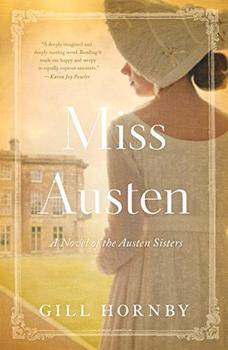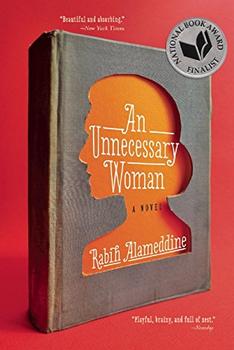Summary | Excerpt | Reading Guide | Reviews | Beyond the book | Read-Alikes | Genres & Themes | Author Bio

A Novel
by Natalie JennerThe Jane Austen Society, Natalie Jenner's debut novel, is precisely the kind of book I needed to read in this time of global anxiety and uncertainty. Loosely based on the founding of the first Jane Austen Society, the character-driven narrative follows a delightful group of "Janeites" (see Beyond the Book) as they bond over their love of all things Austen. Immediately following the end of the Second World War, this quirky crew comprised of "a country doctor, an old maid, a schoolmarm, a bachelor farmer, a fey auctioneer, a conflict-averse solicitor, a scullery maid, and one Hollywood movie star" forms the Society in Chawton, England to preserve the house where Austen wrote and revised all of her novels as a museum.
Although there is no need to have read any of Austen's work before The Jane Austen Society, a basic familiarity will make some of the conversations and jokes more understandable. There is quite a lot of discussion between Jenner's characters about their favorite Austen novels, which at times becomes a bit wearisome, but ultimately adds another layer of context to the story. The bookish conversations establish rapport between the Society members, who come from vastly different social and economic spheres.
As the characters get to know one another better, they begin to open up about their personal lives. For example, one local farmer has felt forced to hide the fact that he rereads Austen's works each winter, thinking this habit would make him the laughingstock of the village. His thoughts are particularly poignant as he considers his life up to this point:
He had gone to work every day merely to survive, saving for himself a few hours every night to disappear into fictional worlds of others' making. He was hoping to find some answers inside these books, answers for why he didn't care about some things and cared too much about others.
In the other members of the Society, this lonely man unexpectedly finds a welcome connection with kindred spirits.
The prose is engaging throughout, although at times it tends toward the expository and there are several points, especially during internal monologues, where the narrative feels overwritten. However, these scenes are also some of the most heartrending. Acutely aware of the knocks life gives every one of us, Jenner treats her characters with understanding and compassion. Years of war and hardship are etched into each, resulting in remarkably realistic personas battling loneliness, loss and out-of-placeness.
Although both world wars are only alluded to, the ramifications of the conflicts are felt throughout the novel. The Society members return again and again to the familiarity of Austen's fiction as a balm for their real-life heartaches:
Part of the comfort they derived from rereading was the satisfaction of knowing there would be closure - of feeling, each time, an inexplicable anxiety over whether the main characters would find love and happiness, while all the while knowing, on some different parallel interior track, that it was all going to work out in the end.
During and after World War I, bibliotherapy, the use of books as a treatment for mental or psychological disorders, was recommended for shell-shocked soldiers. Austen's novels were particularly popular for this purpose. Just as Jenner's characters find their own sense of peace in the author's work, The Jane Austen Society fulfilled a similar necessity for me. Though I didn't realize I needed it, the novel provided a welcome escape from the nearly constant anxiety surrounding the coronavirus pandemic.
The Jane Austen Society is a paean to the power of literature and the positive impact reading can have on us in uncertain times. In telling this fictionalized account of the founding of the real Jane Austen Society, Jenner turns a keen, almost Austenesque eye on her characters, their interpersonal relationships and English village life in the early 1940s. This is a fun, satisfying novel, full of heart and brimming with a love for all things Austen.
![]() This review was originally published in The BookBrowse Review in June 2020, and has been updated for the
August 2021 edition.
Click here to go to this issue.
This review was originally published in The BookBrowse Review in June 2020, and has been updated for the
August 2021 edition.
Click here to go to this issue.

If you liked The Jane Austen Society, try these:

by Gill Hornby
Published 2021
For fans of Jo Baker's Longbourn, a witty, poignant novel about Cassandra Austen and her famous sister, Jane.

by Rabih Alameddine
Published 2014
From the author of the international bestseller The Hakawati comes an enchanting story of a book-loving, obsessive, seventy-two-year-old "unnecessary" woman with a past shaped by the Lebanese Civil War
Your guide toexceptional books
BookBrowse seeks out and recommends the best in contemporary fiction and nonfiction—books that not only engage and entertain but also deepen our understanding of ourselves and the world around us.